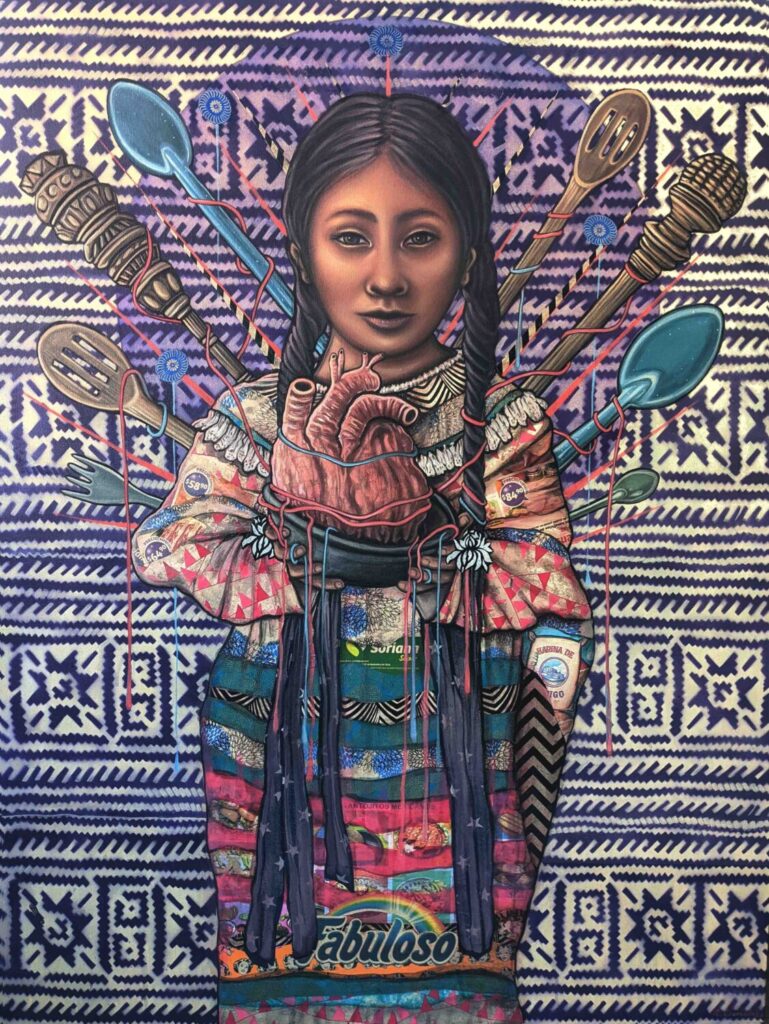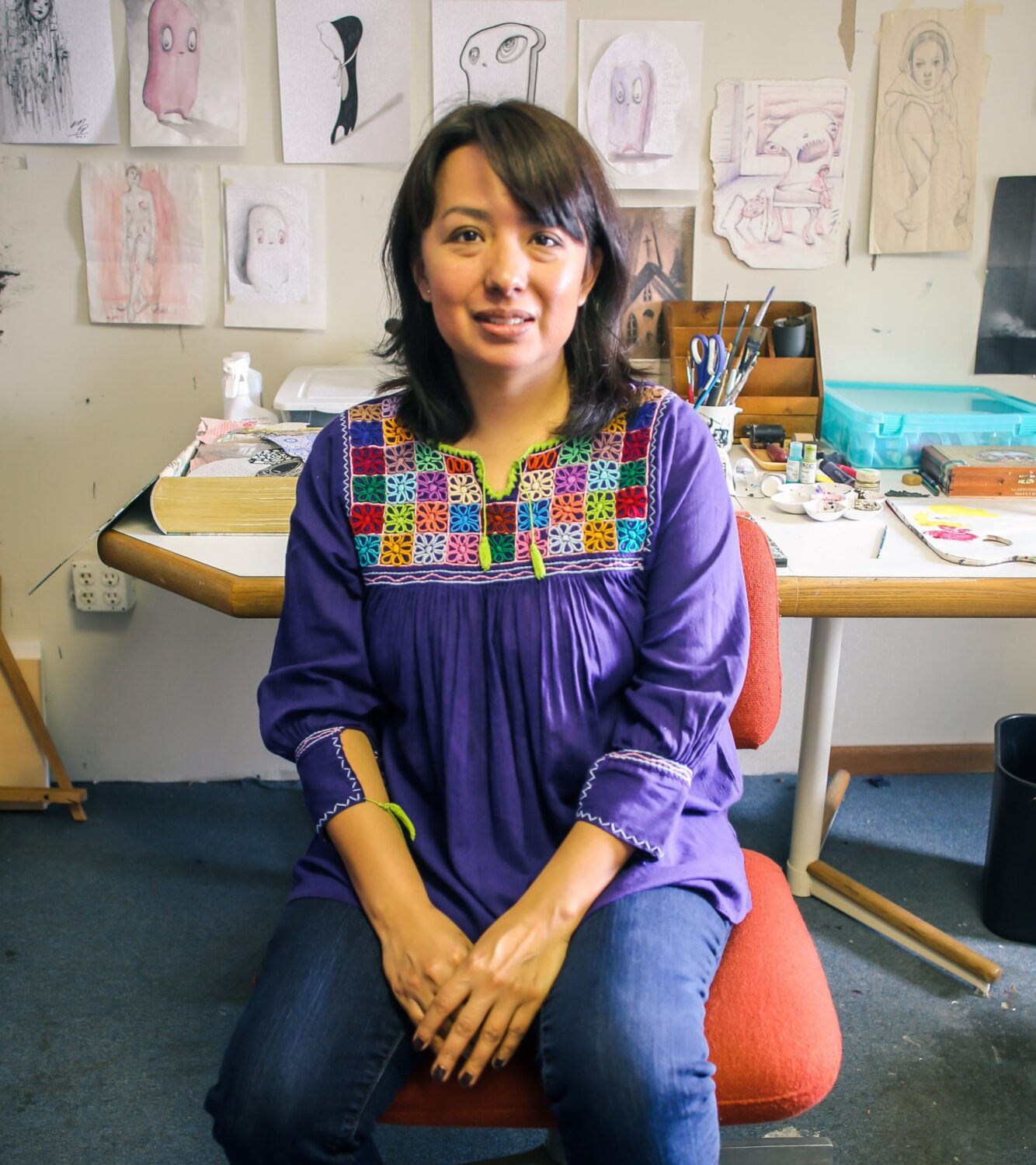
One of the most pronounced differences between Southern California and Wisconsin are the winters, and for Angelica Contreras six years ago, that was what welcomed her to Madison. Although Contreras moved from Los Angeles, she grew up in Guadalajara, Jalisco in Mexico. After earning a bachelor’s degree in art and a master’s degree in art education, Contreras moved back to the United States and eventually ended up in Madison where she was able to connect with a community of artists.
“I started with a show at the Overture [Center],” Contreras told Madison365. “Through that show, I met several other Latino artists, and that started connecting me to other people. It’s been growing ever since, and it’s been really nice seeing how that small group has been flourishing. Having shows and opening new businesses that have to do with the arts … I think we’ve all kind of been growing together, and it’s been a great experience.”
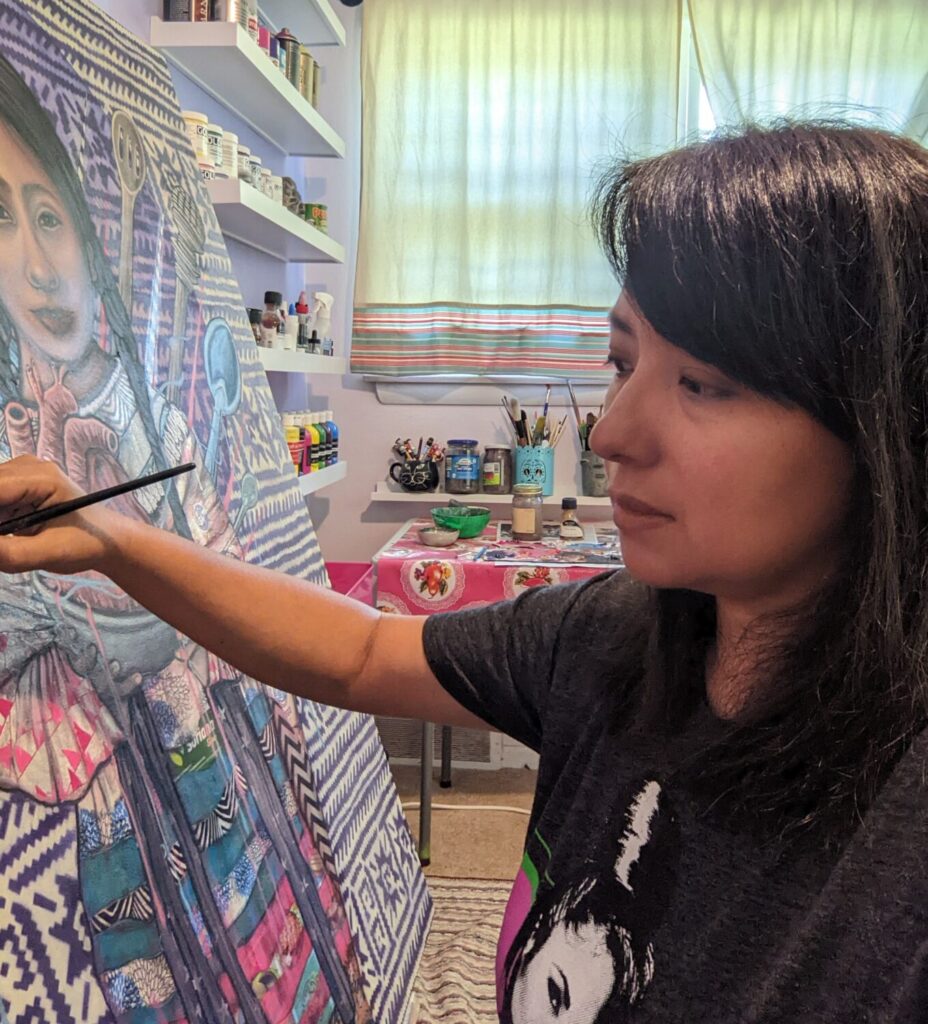
As the Madison community continues to grow and more demand is put into events and opportunities, the past few years have seen a significant response by various communities coming together to highlight and share their art and culture. Contreras reflected on how her art has not only grown through that community, but also through her work with children and education.
“I work with Spanish-speaking communities, so that kind of informs my work at the moment,” expressed Contreras. “Understanding how that plays, going to a different country, the language, diverse cultural situations, and identity, a lot of my work has to do with identity. I’m Mexican American, so I juggle in-between two cultures all the time.”
Contreras’ work sometimes tackles social issues and often acts as an exploration of her own identity, now with an added development of working with children to build identities around language, place, and culture. Experiencing most of her life in Mexico, Contreras’s art gives a complex glimpse into what she describes as layers of culture, identity, and influence. These works usually come out in the form of collages, a medium Contreras works often in.
“Some collage pieces are intentional, and some can be reinterpreted. The last series I was doing had to do with brands,” said Contreras reflecting on how NAFTA shaped buying culture after it was enacted.
“At that point, everyone wanted to just buy American brands. It was a thing of status, but it was an identity thing also that happened over there. Then slowly, I see now, people are adopting or wanting preferably to buy our own brands. That series has kind of played with that.”
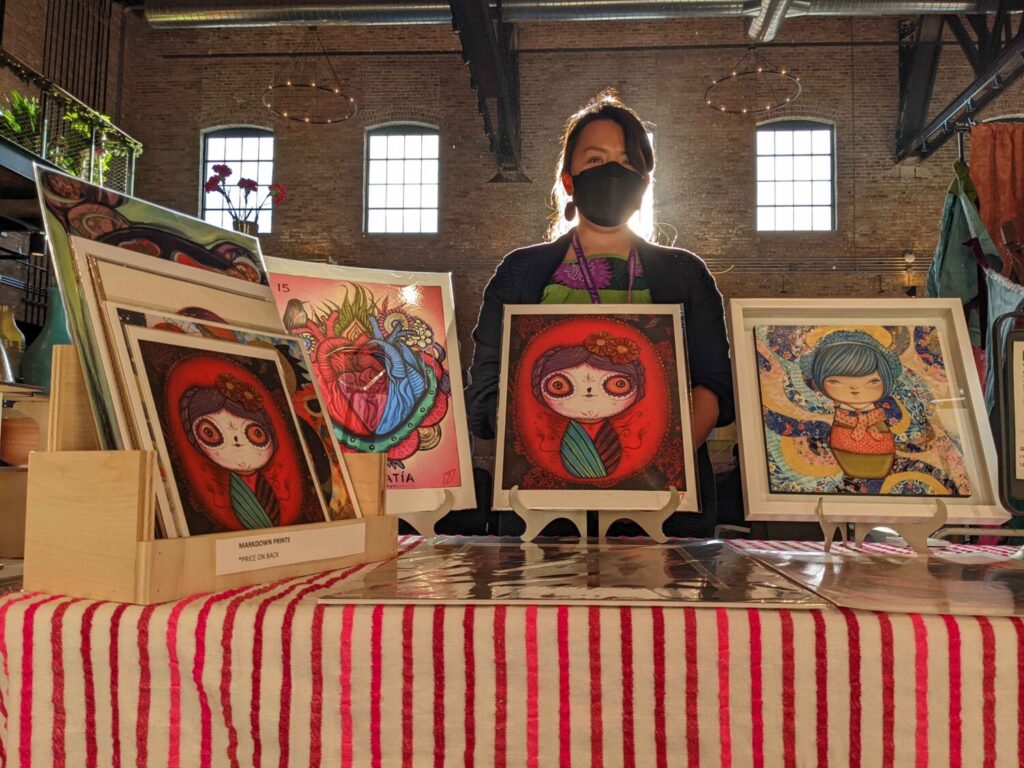
Examining how identity is built and how people carry it with them in their lives also plays an important role in how Contreras builds community. The difficulties that can accompany navigating school systems in the US when there is a language barrier prove how essential resources are for non-English speaking families and students. These are issues that Contreras has both noticed and worked to combat in the community, along with introducing children to what the arts and being an artist can look like.
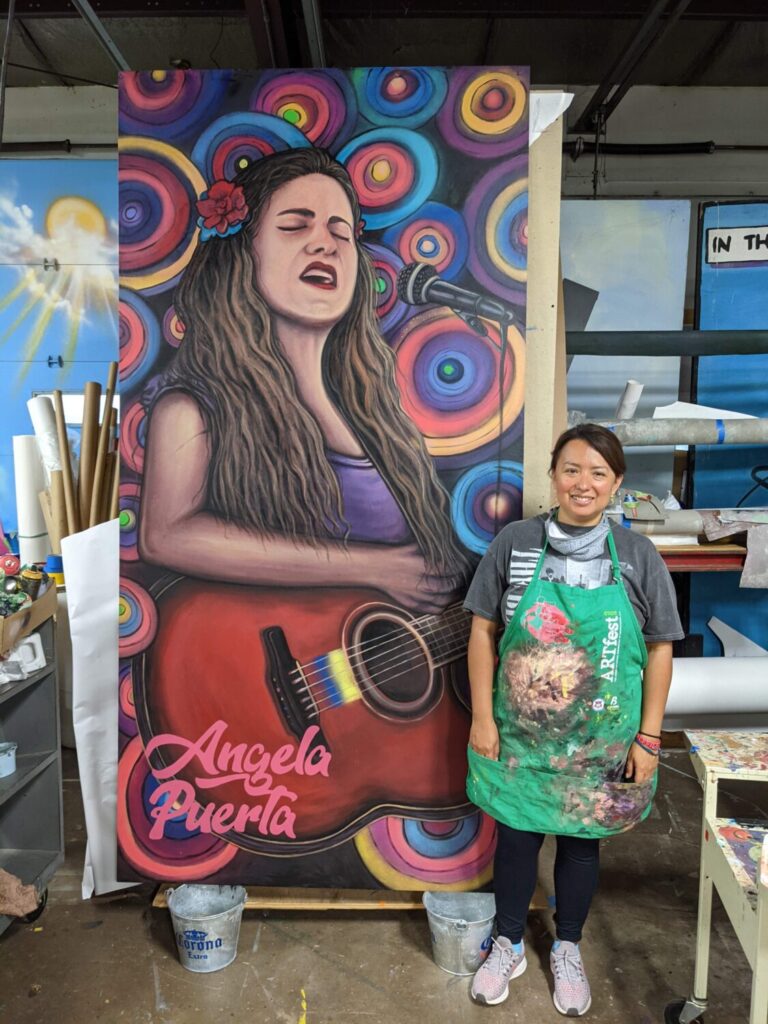
“Both parents and children learn a lot by just giving them space to create,” Contreras said. “For example, the school I work with knows I’m an artist, so at the beginning of this year, the first time I came into the art room, I explained a little bit of what an artist is and what I do. They had many questions…Just seeing that artists can come from different cultures. I have a lot of Latino kids and kids from other communities are like, ‘Okay, that’s a possibility.’”
The role and treatment of artists in society is also a topic of discussion as fair wages and due credit are important to know for any creative. Contreras also shared her experience traveling to Kassel, Germany to attend an arts camp as a part of Dane County and Kassel’s sister county program. The EUARCA+ 2022 Art Camp shaped both Contreras’ approach to engaging children with art, and her own approach to artistry as well.
“I’m kind of in an experimental phase,” said Contreras. “Seeing my work in not only canvases but maybe working with other materials. Right now, the series I’m working on has to do with food, but food as like decolonization and its origins. It’s all metaphoric and the layers I’ve maybe used to work with, with the collage, are more metaphorical now. It’s working with the origins of things, so that’s what I’m doing and maybe in the future, some video art.”
To check out more of Contreras’s work and learn more about her, check out her website here.
Angelica Contreras will also be teaching a workshop for youth ages 6-14 in June at the Art + Literature Laboratory. Information for that can be found here.

